Tarak is a social worker who addresses the aspects of health care that aren’t typically dealt with in clinics and hospitals. He helps people with issues like housing, addictions and social isolation. Working in the community in which he grew up, he tries to find opportunities for youth and help them build strong relationships with the elders in their community.
“My family and I immigrated to Canada from Bangladesh when I was seven years old.”
Growing up in an immigrant family, the resources and supports one needs to become successful are not always there.
“My parents weren’t well versed in English. I’m the second oldest, and my three younger siblings were looking up to me for guidance and support.”
“When I was entering high school there was a program in the community called Pathways to Education. It provided me with social, financial and education support to stay in school and become successful. Pathways opened the door to a lot of opportunities like free mentoring, summer employment, scholarships, etcetera. Every month, I was provided with a free Metropass, which helped a lot. When I completed high school, Pathways gave a $4,000 scholarship to put toward my post-secondary studies. I was also able to take two university courses while I was in high school and get an understanding of whether university was right for me, which led me to pursue a bachelor’s degree at Ryerson.”
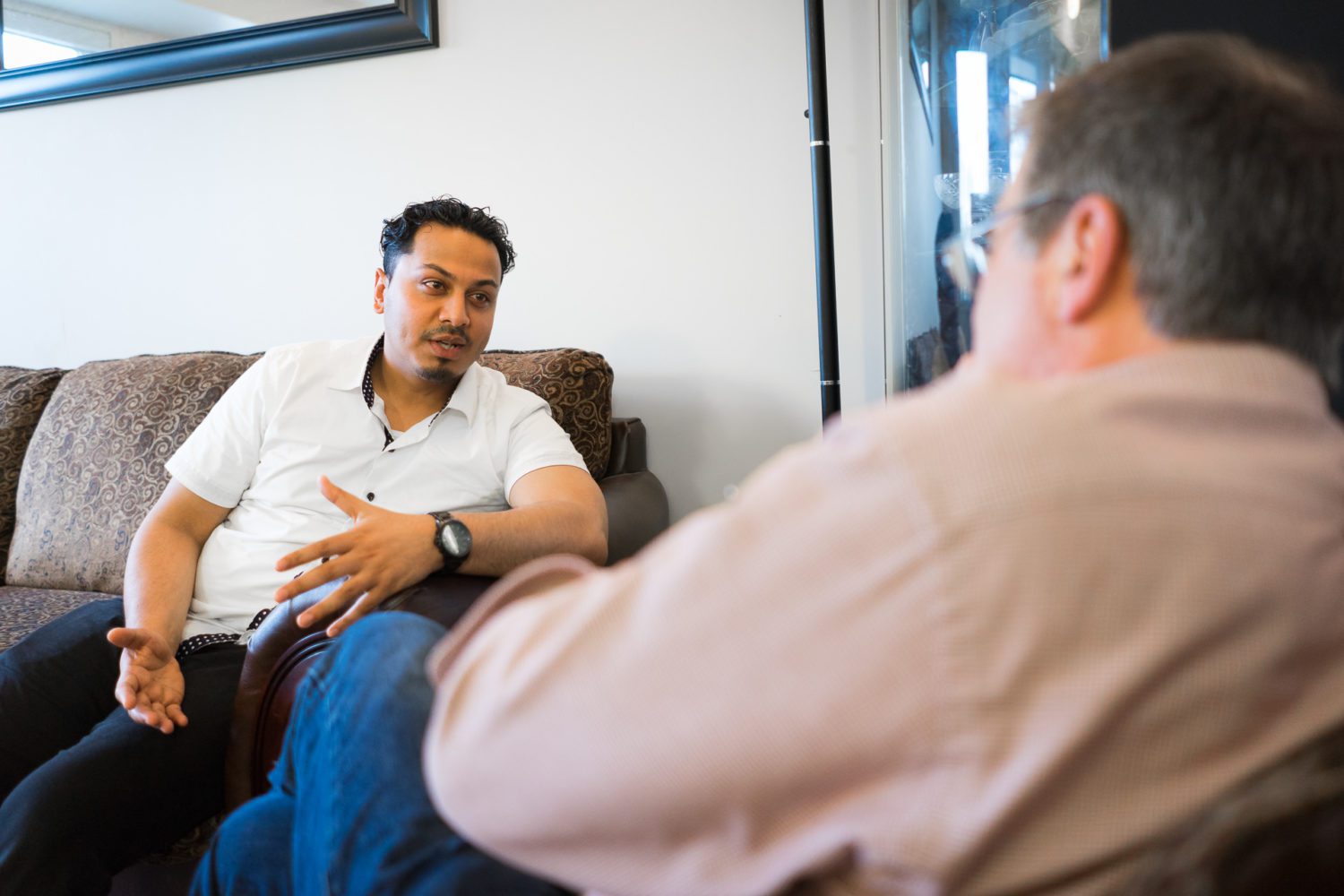
“What made you go into social work?”
“As a kid, I joined a lot of community programs, which eventually led me to work for Toronto Community Housing as a youth worker. I wanted to do something that I would enjoy and would add meaning in my life, and social work seemed to be the best fit.”
“I was primarily working with kids who were involved in drugs or gangs.”
My objective was to create opportunities that didn’t exist in the community.
“I wanted to show the youth that they had a choice and the path they chose would ultimately define their life. I wanted them to make informed decisions for their future.”
“Opportunities in the community were very limited; often, the youth would hang out and loiter around the lobby all day. And, often, the response from the community was to increase security, which led to youth being criminalized. I wanted to change that attitude and instead open up community recreation facilities for youth to play, learn and be safe. We invited seniors and families to come by and share their life experiences and struggles with youth. This led to a friendship and support network.”
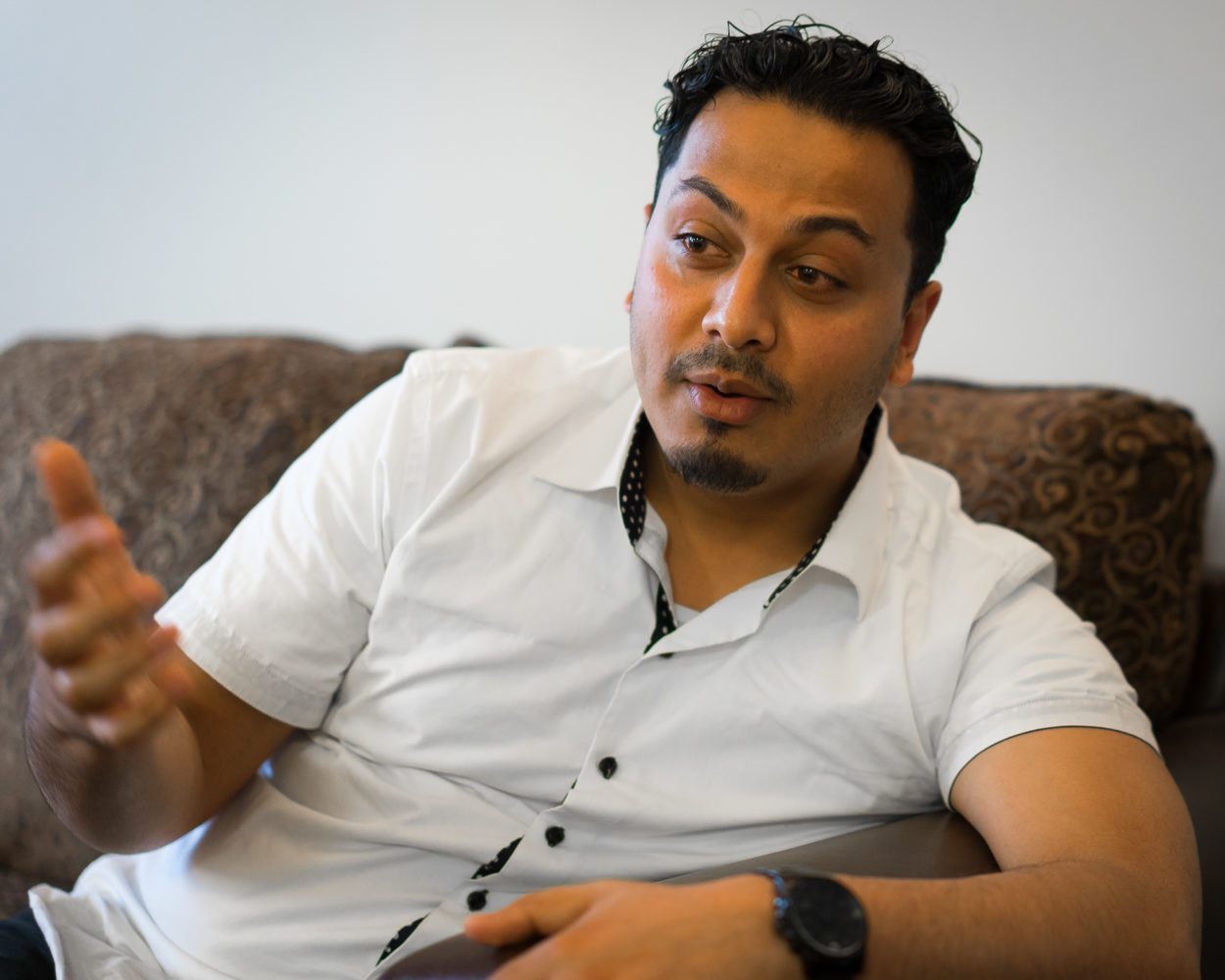
A lot of youth were killed over trivial issues like being involved in petty drug dealing in a neighbourhood with poverty and gangs.
“So I tried to show the youth other possibilities, to connect them to as many opportunities as I could, like going to the US for Barack Obama’s inauguration, to New York for the United Nations assemblies, and to northern British Columbia to a First Nations reserve.”
“Once we knew what program we wanted to provide, then we’d start approaching organizations for support. For example, I’d send an email to a Tim Horton’s executive saying, ‘These are the kids I am working with, is there anything you can do?’ Worst case scenario, he says ‘No.’ Some companies are not going to give you money, but they will give you a $1,200 gift card for food, or they’ll give you tickets, or rooms in a hotel. We once hosted an event for the FIFA World Cup, and Rogers brought in a couple of big screen TVs and gave us cable. I got some chairs from another organization, and the whole community came out to watch the games. Building that community is very important. People of all ages, gender, religion and sexual orientation are able to come together to have fun and build memories. These events unify the community and force people to get outside their comfort zone and make new friends.”
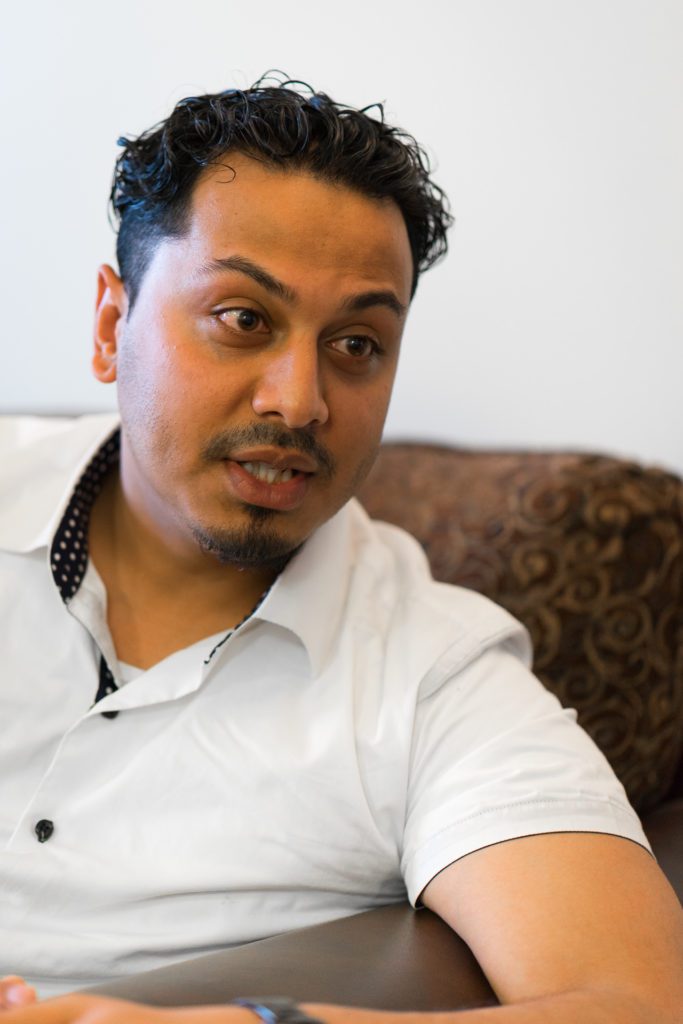
“Even though there are a lot of gaps in services for youth, there is actually quite a lot of support services available compared to seniors. We have an aging population and the services in the community don’t reflect that demographic. Part of my job now as a social worker is to assist our senior citizens in accessing these resources and supports. For them, the challenges are predominantly related to housing, food security and social activities. A couple people that I am currently working with live in a home where they have a place to sleep and they get three meals a day. But their social and recreation activities are very limited and it’s mainly due to mobility issues, they can’t get from point A to point B. Transportation is a huge challenge!”
Isolation leads to depression and anxiety.
“Clients will call the crisis line and say, ‘I don’t know if I should take my medication. I am scared!’ But really, they just want to speak to someone.”
“They want someone to sit with them, they need social visits. Unfortunately there aren’t enough resources in the community to hire someone to take them for a coffee and just ask, ‘How is life? What’s going on?’ There’s not enough funding for social programs for seniors. When I take someone for a coffee, it comes out of my own pocket.”
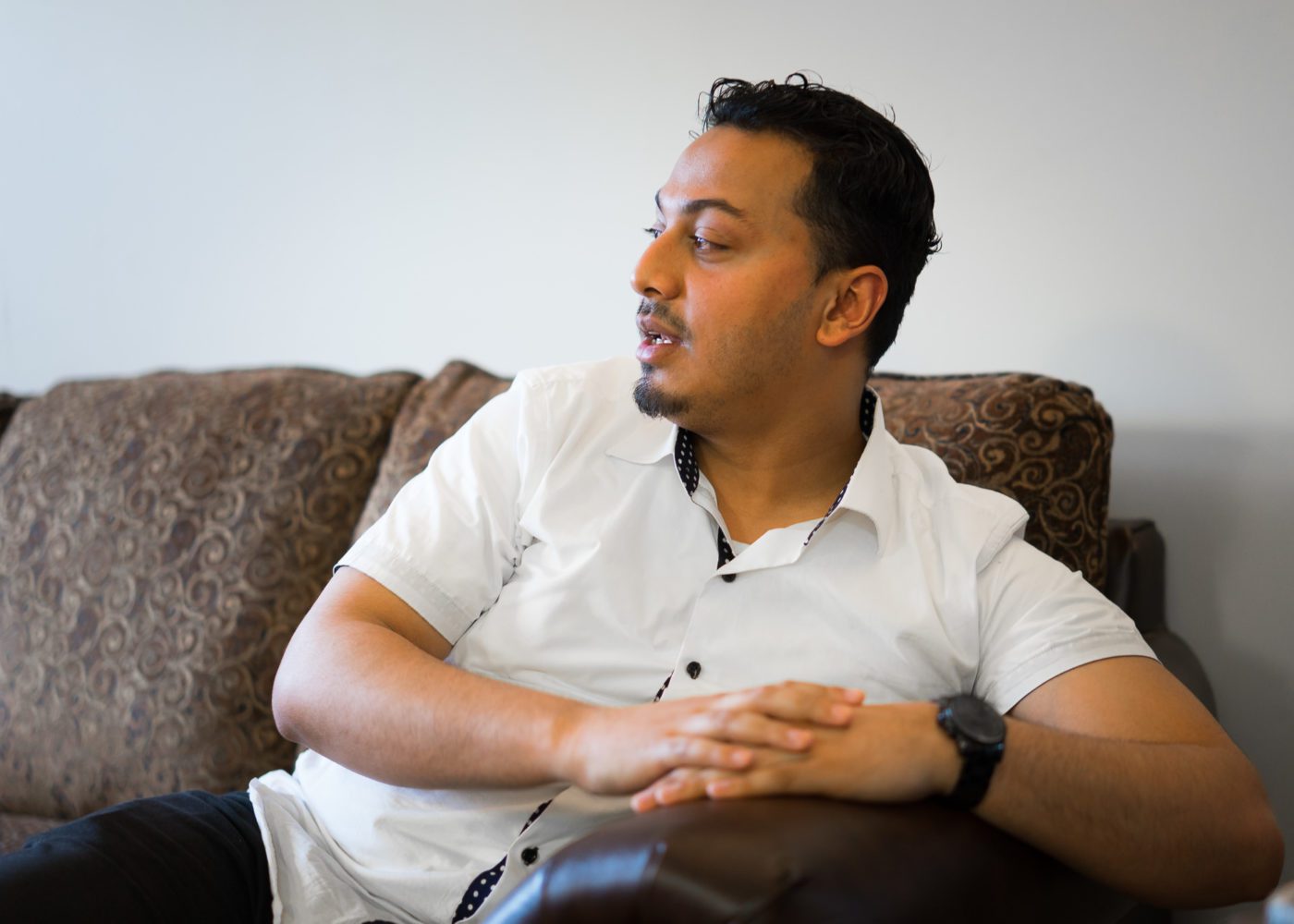
“Social workers’ case loads are really high. We don’t have the time and resources to attend to all the needs. So, we have to triage. Once I get into the office in the morning, I often deal with crisis calls. Someone is losing their house, another person is in jail, and someone was found overdosed and is being taken to ER. Social work can be very tough. I have friends who are in the business sector and when four o’clock hits, they clock out. But if a person is in a crisis, four o’clock has no meaning until the issue is resolved, they are safe and there’s a care plan in place. I like to think I am trying to save the world, but we are so limited as individuals based on time and resources that you can’t attend to everyone’s needs. You try your best and hope things will somehow work out.”
One of the biggest challenges I face is with the current privacy legislation.
“I have someone right now who has been missing for a month and I can’t locate him. He is known to go from shelter to shelter. I have consent with one shelter, but if he goes to other shelters and tells them not to talk to someone from my team, they can’t tell me anything.”
“Even if he has been found incapable of getting treatment and controlling finances! It’s very difficult. We need to allow workers who are supporting the same clients to share information more freely, for the clients’ well-being.”
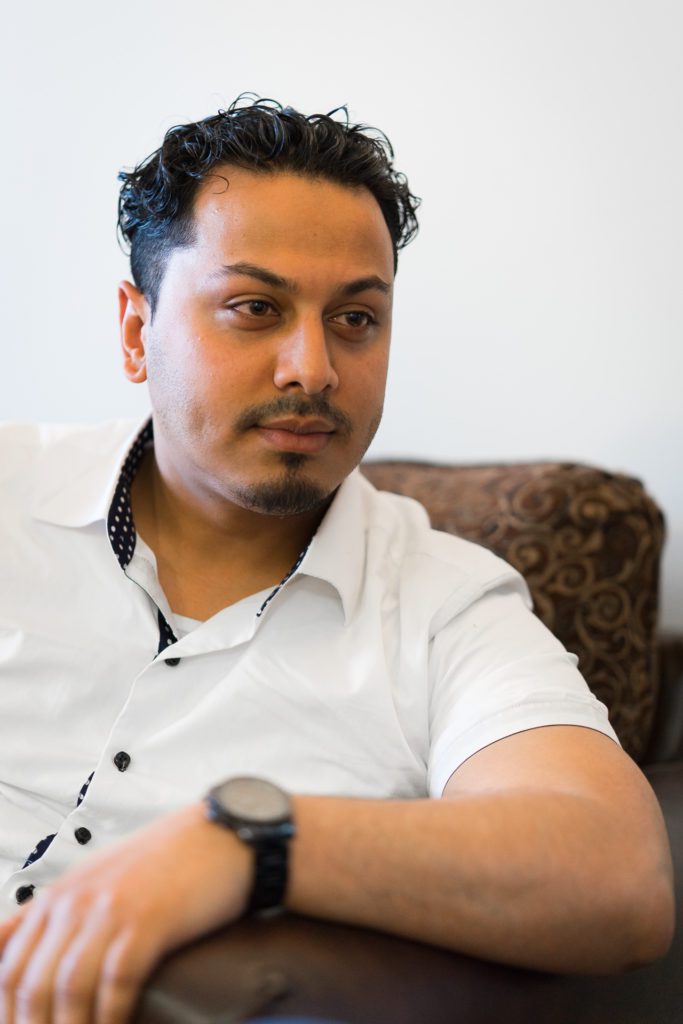
“My dream is to be a professor of social work. I would like to be a role model, to encourage people from my community to go into social work. I am extremely lucky to be back working where I grew up. Right now, there’s a stigma attached to social work in many immigrant communities. I tell people in my community that I am a social worker in mental health. They are like, ‘Why? What is wrong with you?’ {Laughter} They are very focused on a couple careers like engineering or medicine and that’s all they see. But it’s okay to be a social worker! There are great benefits in it!”


The comments section is closed.